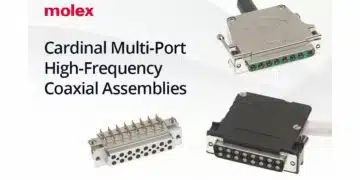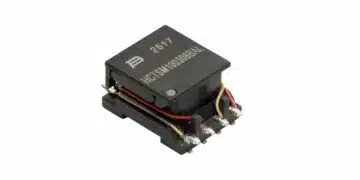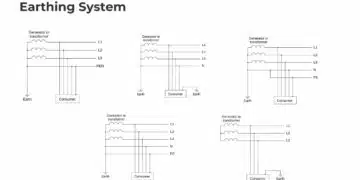Empower Semiconductor, the world leader in Integrated Voltage Regulators (IVR), today announced a breakthrough with the highest performance, most configurable, and smallest commercially available range of capacitors. E-CAP™ is a vastly superior performing capacitor, far exceeding the semiconductor industry’s previously leading Multi-Layer Ceramic Capacitors (MLCC).
The capacitor is one of the most basic and fundamental components in electronics needed for energy storage and supply voltage filtering. The capacitor industry has not progressed nearly at the rate that all other electronic technologies have or as the semiconductor world needs. Currently the leading technology is in MLCCs, but they are space limiting, inefficient, unreliable, and low performing. Empower Semiconductor is changing all of that with the introduction of E-CAP™. It is the most exciting advancement for capacitors in decades as it enables new possibilities for today’s applications due to the incredible size reduction, performance increase, and improved reliability.
“We like to achieve power management innovation at Empower and our team always targets knocking down technology barriers to enable the next generation of applications. We have had tremendous customer demand and interest in the game-changing technology of the Empower IVR™ power ICs and now, once again, with our breakthrough of re-imagining the capacitor” said Steve Shultis, Senior Vice President WW Sales and Marketing at Empower Semiconductor. “During the development of our EP70XX IVR, we determined that off-the-shelf capacitor technology was not good enough for demanding applications. As a result, we re-designed it with the performance we required in size and flexibility. We are excited to make this technology available to our partners.”
With game-changing capacitor density and flexibility, E-CAP™ technology allows for groups of varying capacitor values and sizes to be integrated onto a single die. Space critical applications that cannot afford to have a sea of capacitors spaced out can be realized with E-CAP™. Height limited applications are also addressed with the capability of much less than 100µm in thickness. This tiny die format allows for footprints that are 80% smaller than equivalent MLCC based solutions.
E-CAP™ technology features superior stability with no DC or AC bias de-rating, no temperature de-rating, and no significant effects of aging. Combined with the ultra-low ESL (15pH), E-CAP™ provides a highly simplified and reliable solution to the system designer. This highly differentiated high-performance technology is available in configurations up to 8.4µF.
Empower’s EP70XX IVR family, which is known for its superior performance and unmatched power density, was the first application for E-CAP™. Empower has mastered the expertise of leveraging the superior characteristics of the technology to provide its size benefits to a variety of implementations such as die, package, and PCB substrates. The performance benefits allow higher power efficiency to be achieved due to the superior voltage filtering for better SoC/CPU voltage accuracy during load transients
E-CAP™ opens up demanding new applications in IoT, wearables, mobile, and processors where size, performance, and flexibility are essential.































